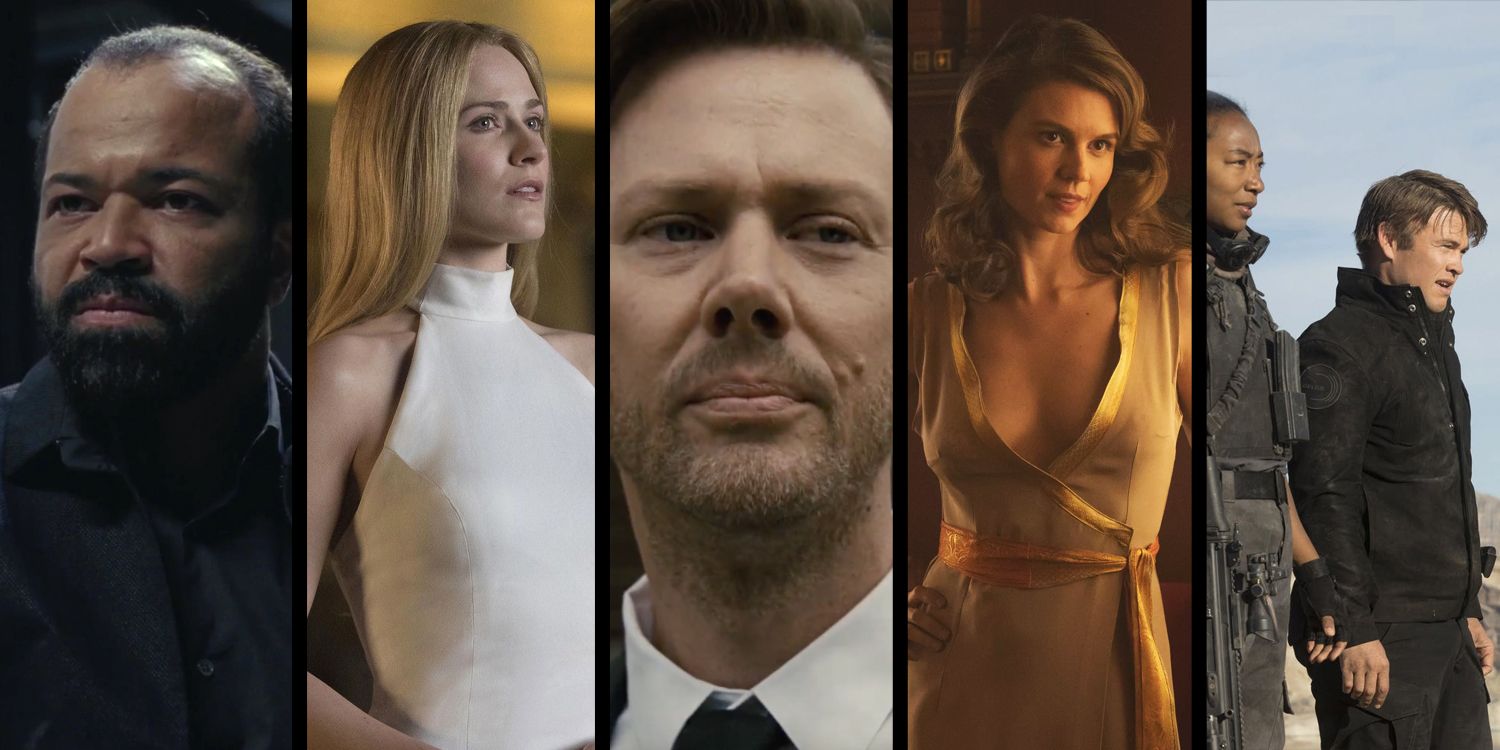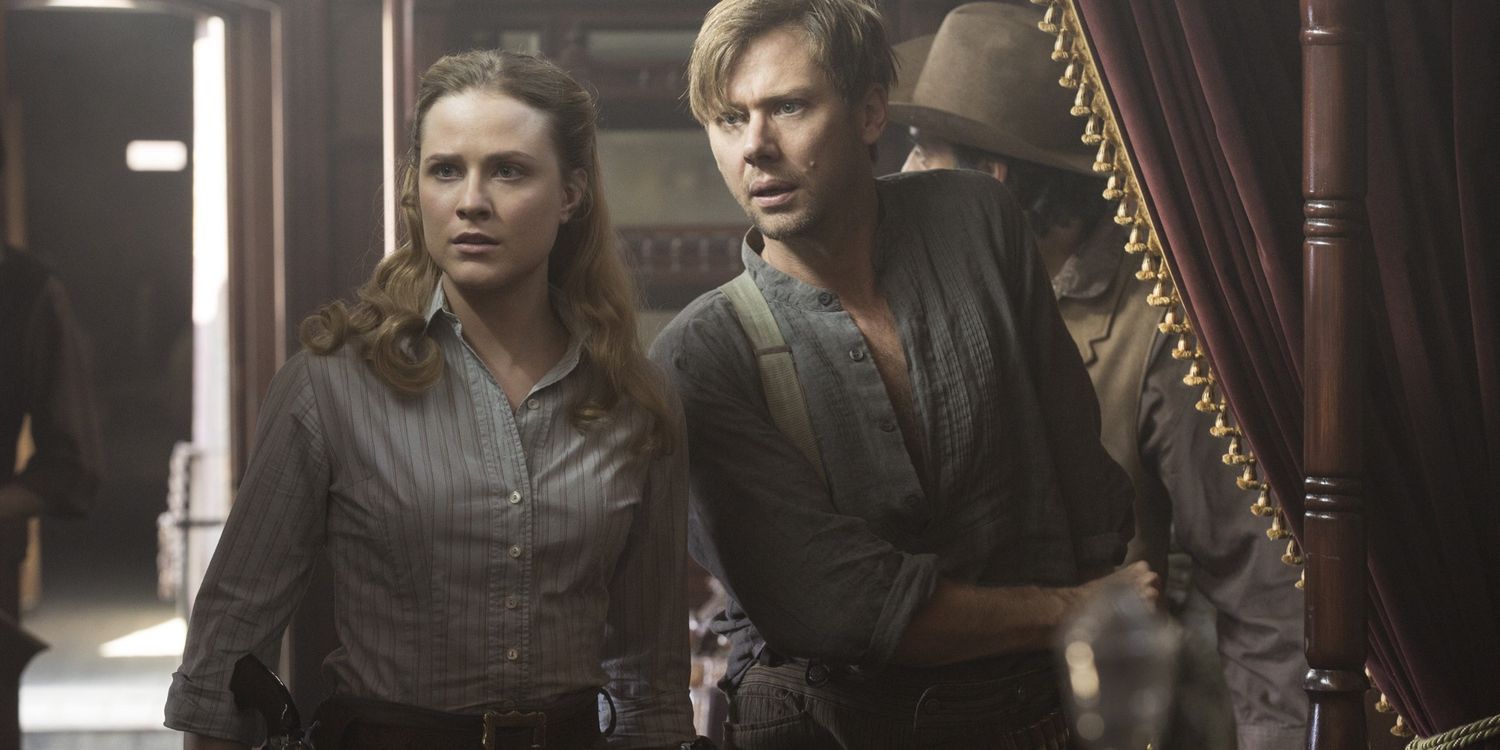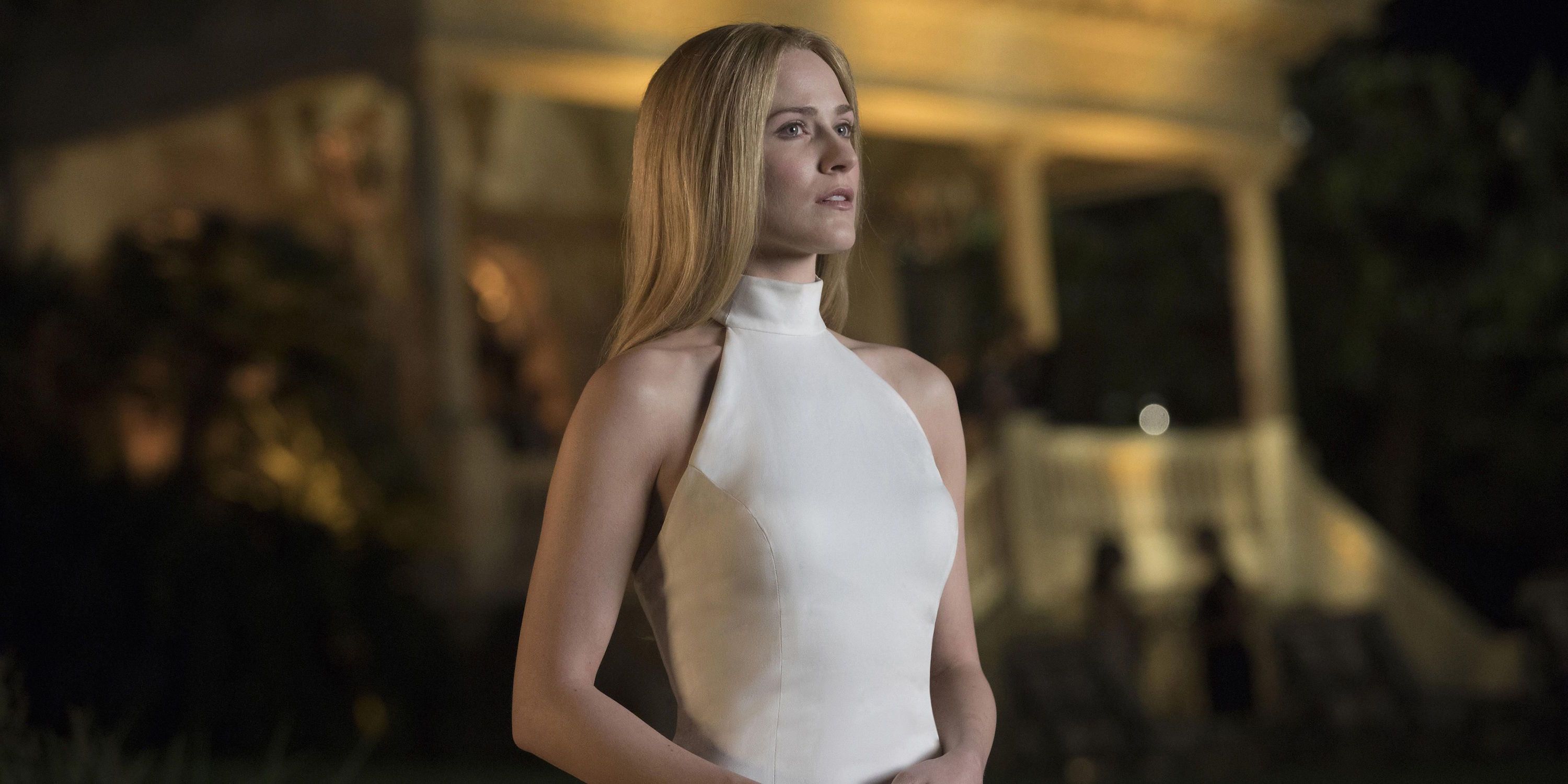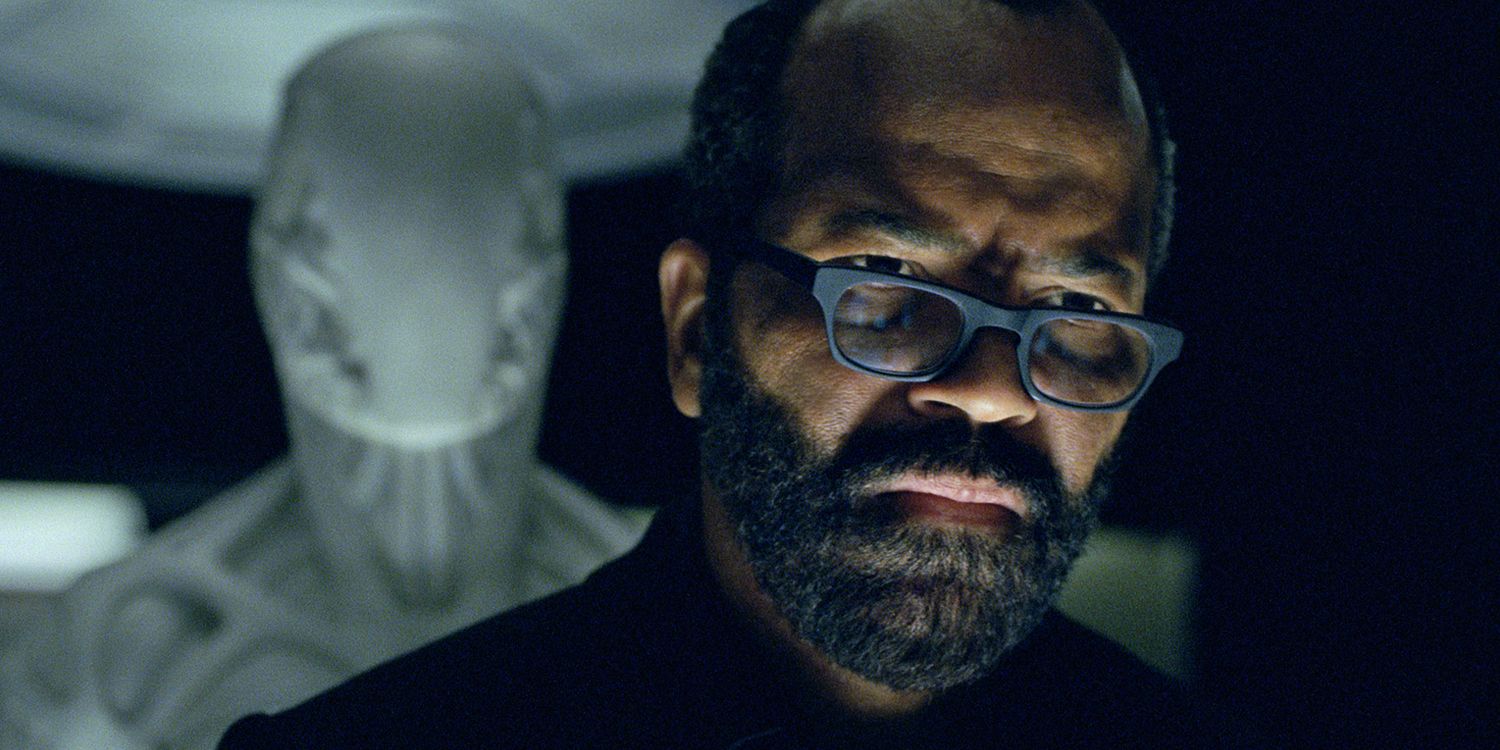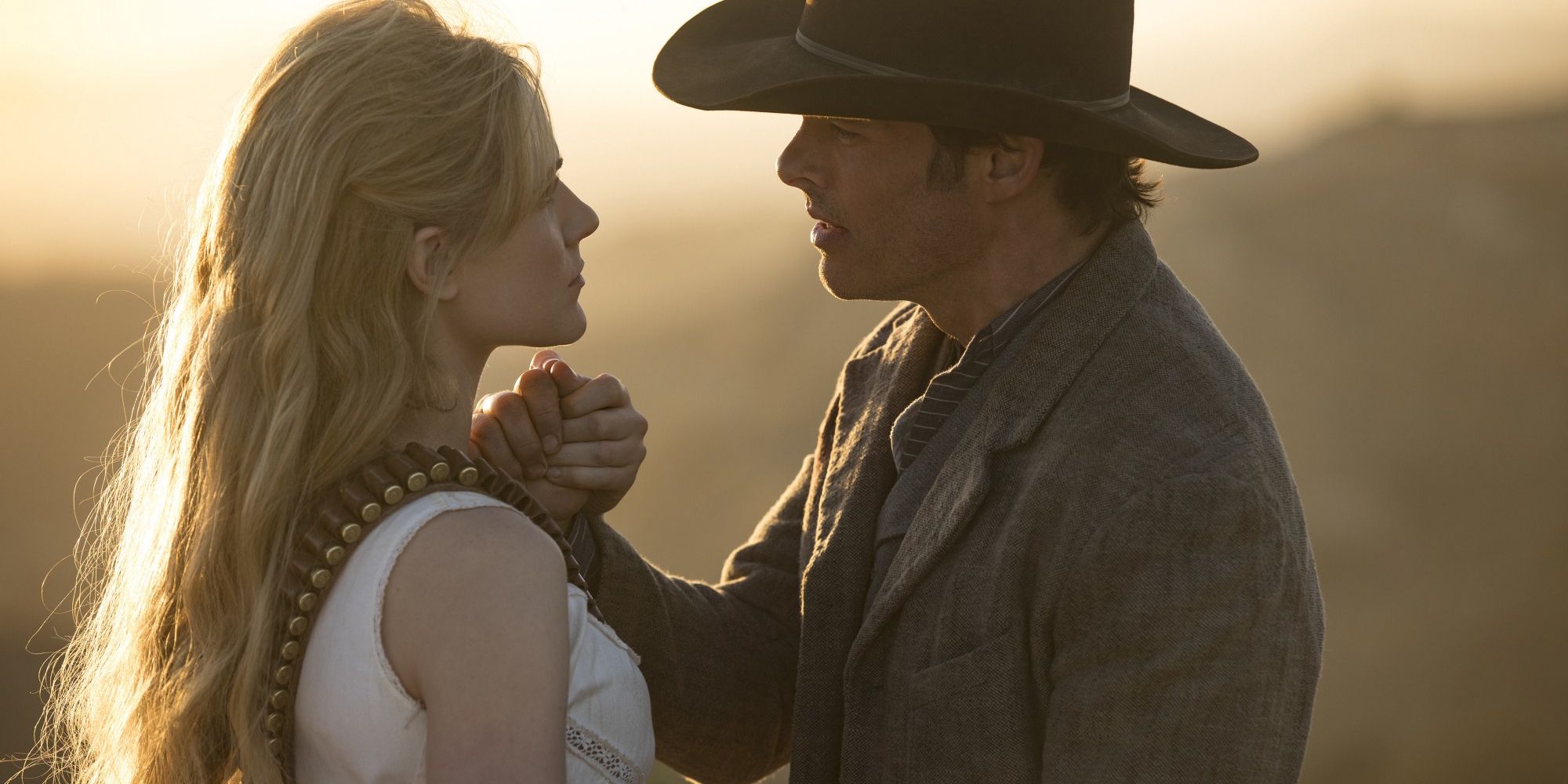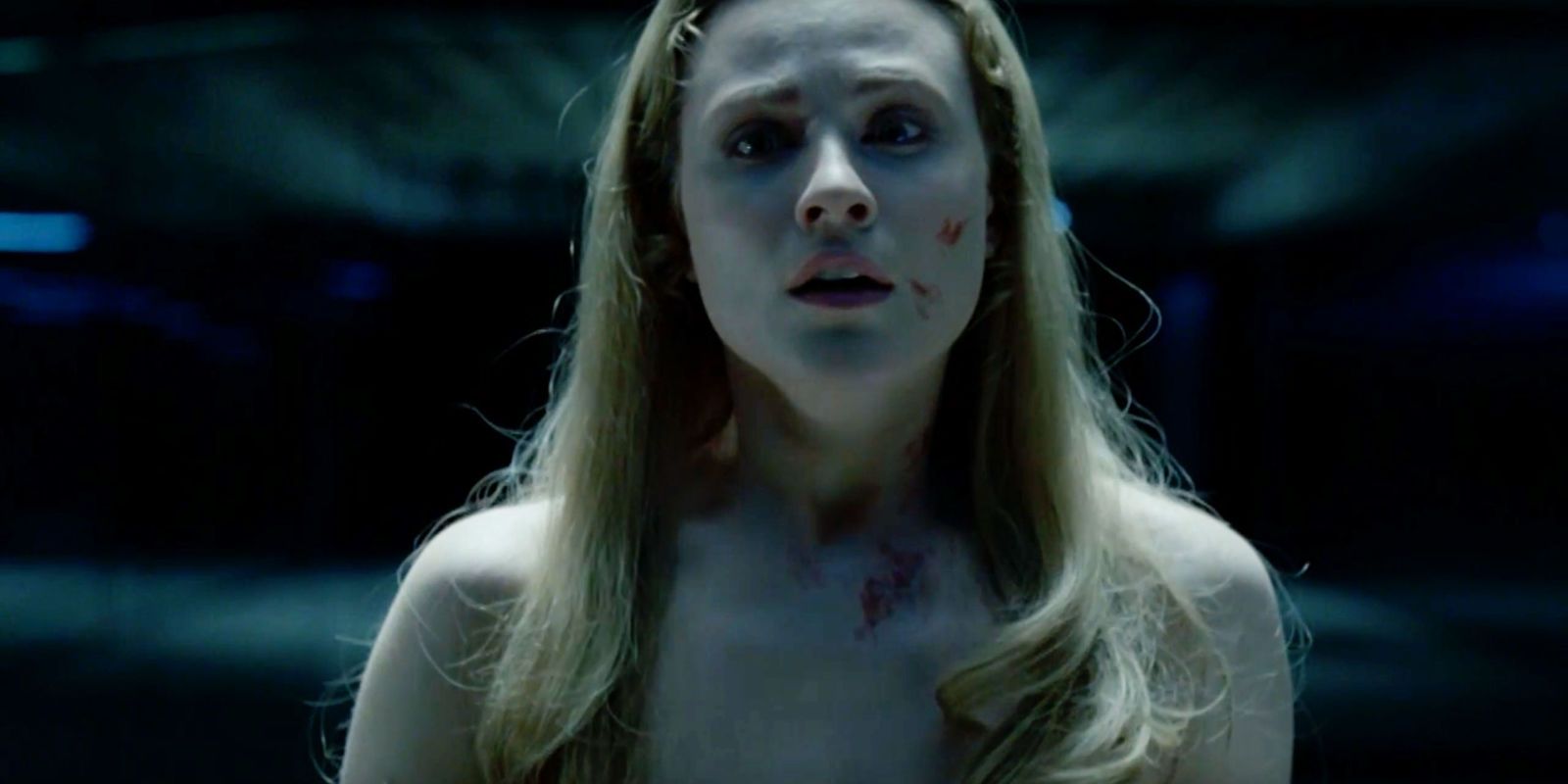Warning: Spoilers for Westworld Season 2 Episodes 1-4.
Westworld Season 2 has thus far proven a mixed bag, and the root of its problems are a near-obsessive approach to multiple timelines. Once the show's ace, it's become an interchangeable predictable and tiring trope, and in Episode 4 goes simply too far.
That Westworld has struggled with the tricky second album is somewhat surprising given how much of the broad story is mapped out by the concept. The show is based on Michael Crichton's 1973 film of the same name depicting a futuristic theme park gone wrong where the robot hosts turn on their guests with bloody precision (although many of its ideas of robot identity and nefarious corporate dealings didn't manifest until sequel Futureworld), and HBO made clear there was five-season plan from the off. Given how Season 1 was very much focused on getting up to the original's starting point - it ended with creator Ford allowing himself to be killed by way of host Dolores gaining consciousness and in the process untethering the rest of the robots - it was assumed Season 2 had it easy: it's finally delving into the base premise.
Related: Westworld Season 2 Cast & Character Guide
However, the first four episodes have been tough going. The show is still incredibly well-made (bar its fight scenes), with top-level acting, visuals and overall aesthetic design, and overall achieves a "good" descriptive, yet the story it's telling feels off to the point it can be exhausting. So many of its plot turns - the park is Facebook, the park is about immortality - come on the fly, as if what would happen after Dolores pulled the trigger wasn't even considered before renewal. It's even unclear quite how the "free" robots work.
Season 1 tied everything together with gusto, but if this run has a similar trick up its sleeve, the journey is questionable. There's a lot of elements of the show's storytelling to unpack in response to this: episodes run too long; it's following Game of Thrones' structural formula without the roadmap George R.R. Martin provided; the themes and character arcs are yet to be in any way clear. However, after the fourth episode, an emblematic concern has emerged: timelines.
- This Page: The Evolution of Westworld's Multiple Timelines
- Page 2: Where Westworld Season 2 Has Gone Wrong
- Page 3: Westworld Shouldn't Even Be Using Multiple Timelines
Multiple Timelines Was Westworld Season 1's Masterstroke
Multiple timelines are baked into Westworld as a show. They were first introduced in Episode 2 of Season 1 and went on to define the entire story of that first run. Throughout the debut season, we're led to believe that everything is unfolding concurrently, but eventually things fracture. First, we learn that technician Bernard is a perfect host replicant of park creator Arnold and his philosophical conversations with Dolores take place decades before. Then, in the final episode, it's revealed that everything involving hedonistic Logan and mild-mannered William is also in the past and really an origin story for the Man in Black, a grown-up William, with Dolores straddling timelines.
It's was a genius move, one that gave Westworld a scope grander than previously suggested and tied the character and thematic threads together. We got to unknowingly gain compassion for the Man in Black while obliviously seeing older William do horrendous things and, in doing so, upon reveal immediately understood the motivations behind multiple distressing moments. Fundamentally, though, it perfectly conveyed Dolores' journey through the Maze consciousness; she was lost in her own memories as the audience was, and bringing it together elevated perceptions.
Related: Westworld Season 1 Recap: The Maze & Multiple Timelines Explained
Nevertheless, the move proved controversial, in part because it was overly complex, but mainly due to how fans on Reddit managed to crack it almost immediately. Jimmi Simpson's eyebrows were plucked to better mirror Ed Harris', Clifton Collins Jr. appeared as two characters simultaneously without comment, Dolores kept crosscutting from William and her own, solo journey, and so much more. It was "obvious" in the most obnoxious, over-informed sense. However, that's hardly a problem (no matter what showrunners Jonathan Nolan and Lisa Joy feel); it was only a theory (unlike screener-influenced speculation on Grace's relation to William) and even if its accuracy verged into spoiler, to suspect mostly accentuated the emotion of the show, not dissimilar to how R+L=J's popularity did nothing to quell its eventual confirmation on Game of Thrones. It was balanced.
It's also worth noting at this point in the article that, as integral as this all was to Season 1, it wasn't alluded to in any firm way in the pilot: we were introduced to the Man in Black and had Peter Abernathy affected by time displacement, but the suggestion the show wouldn't be linear was nowhere to be seen. That only came with William's introduction in Episode 2. It's thus possible this wasn't part of the core pitch and only became a major trope as the bigger picture developed. That will be important as we see things go off the rails in Season 2.
Page 2: Where Westworld Season 2 Has Gone Wrong
Westworld Season 2 Is Working With Too Many Timelines To Count
It was assumed after the big, weighty reveal that Westworld would be done with multiple timelines. How wrong we were. From the first sequence, the show was jumping through Bernard/Arnold's memories, and the rest of the season premiere took place in two periods: immediately after the start of Ford's narrative and two weeks later when Delos security arrived on the Westworld island. Season 2 had already matched Season 1's volume in one hour. Of course, it mostly worked: we got the narrative continuation sprinkled with dramatic irony and a general scope for what was going on, with a clear indication everything hinged on Bernard's murder of all the hosts.
But it didn't stop there. Episode 2 was the flashback episode, going back through Delos' involvement with the park; it detailed Logan, William and James Delos interacting and defining the future, as well as hinting at some dark secret. A lot of time periods, sure, but a common storytelling device that again worked. Episode 3 maintained the two primary timelines, but also had a micro-episode pre-title of The Raj on the turn of the uprising. Episode 4 is the tipping point, though; we have the Lost-like flashbacks showing William's attempts to turn James Delos into an immortal, human-host hybrid that serves to reveal more about what's really going on at the park, alongside the main run of events, but also through this there's Bernard accessing his own memories to crack what's happened.
Related: Westworld’s Two New Parks Explained
Already we have almost a dozen time periods for the season, and while many were background or contextual, all carried an assumed pomposity. It's particularly important to note that the forms of different time periods are also numerous; we have expositional flashbacks, character memories, cutaway bookends, and, most damagingly, bleed-over. That's a lot of variables for something that has become so singularly defining, and the show seems to relish that. But it's reached breaking point.
Multiple Timelines Are Influencing The Plot And Ruining The Story
Bernard solving a problem by drifting through his memories is where this goes from overwrought narrative device to direct (and negative) plot influencer. It's been implicit that hosts can remember their past lives since Ford introduced the reveries in the series premiere, but never have we seen that bleed in such an explicit way: Bernard moves the plot of the episode forward by essentially going into another timeline and taking information from it. The storytelling device has broken into the open narrative in a foundation-less way, and so suddenly all bets are off. These timelines aren't about presentation, they're able to be - at random - used to influence what's being told. Everything is now cheap because the fabric of the show can bend at will (doubly problematic given the strength of Reddit fandom).
That's bad enough, but when you start looking at how Westworld Season 2 is actually using its dozen timelines, it gets worse. Episode 4 is in three distinct time periods: Delos in the past, Bernard also in the nearer-past, and the uprising in the present. As the episode is mainly about James Delos and William's past and future, the recurring jump backs to the immortality experiments make sense. But why do we get Bernard's equally as prominent, with the big twist of the hour (plus ten) being that he's killed scientists in the past? In Peak TV, the idea of self-contained episodes is wilting (although The Assassination of Gianni Versace did show how to do episodic-as-serialized perfectly) but for something as grand as Westworld - this week's was longer than some movies - that lack of cohesion is problematic. There's so much timeline jumping it's getting messy.
But both of these are more symptoms of how Westworld is starting to rely on the timelines for all its smarts. In "Riddle of the Sphinx", early on we see a tray of host eyes flying in the air, which at the end of the episode is revealed to be part of Bernard's lab massacre. Now, the show acts like this was a payoff. However, it wasn't really narrative foreshadowing or a remotely clever trick: Westworld simply played a clip from a later scene earlier on, then tried to act surprised when the inevitable came to pass. It's not worked into the plot, the show is just using the fact it has so many timelines to throw audiences off.
Related: Westworld Theory: Dolores Is Still On A Programmed Narrative
That's a small example, but it runs rampant. To wit, while how Benard killed the hosts was established as this season's defining aspect by the premiere and is still where everything in the past is heading, it's lost all sense of story prominence in the subsequent jumping. Westworld isn't just tricking the audience into thinking its basic narrative of confused motivations is somehow more nuanced, it's actively burying what it has of interest.
Page 3: Westworld Shouldn't Even Be Using Multiple Timelines
Is This All Westworld Can Be?
What makes this all sting is that we know Jonathan Nolan can do better. He has a history of timeline twisted stories throughout his career, mainly in collaboration with his director brother, Chris: he authored the short story on which Memento was based, and co-wrote the screenplays for The Prestige, The Dark Knight, The Dark Knight Rises and Interstellar. Three of those directly use non-linear, time-jumping narratives with finesse to tell emotionally-involved tales of loss (and Rises definitely watches with a similar fluidity). The parallels, especially between the intertwined The Prestige, are right there in Westworld Season 1; both could be told in chronological order, but the complex nature of the inter-character relationships are clearer, and the gut-punch reveals of the multiple twists more effective as a result.
Now, Westworld Season 2 isn't complete and so the payoff isn't yet known, but that integral purpose and connection isn't there thus far. The show unfolds with the sense shocking turns are dreamt up and then how they can fit into the story is manufactured after, with the manner usually being falling back on the twisted chronology; the multiple timelines are being used seemingly because they worked before, not because they're necessary, and in practice this serves just to hide information in a lazy manner.
Related: Westworld Theory: William Is The Other Human-Host Hybrid
The latest episode reminds less of Game of Thrones or anything from the Golden Age of TV, and more Lost - or rather, its misguided imitators. A great show my any metric, Lost was nevertheless one of tricks and sleight of hand that worked where many follow-ups failed mainly due to the constant prominence of character (that's why the finale subverted expectations). Parallels to Lost's mystery are easy to spot in Westworld Season 2 - hiding the identity of James Delos at the start of Episode 4 is a riff on a classic Lost season premiere trick and the underground bases hiding deeper secrets and a bearded Scotsman are so Dharma you expect to start hearing the numbers - but the distinction lies in the handling of the timeline. Whenever Lost jumped back, forward or sideways, it was about exploring the characters. In Westworld, with Dolores/Wyatt utterly confusing and what William's up to aggressively vague, the timeline jumps are entirely about impressing with the methodology. Westworld as it is currently feels like Damon Lindelof without the heart.
Westworld Doesn't Even Need Multiple Timelines
This all makes for exasperating viewing, but considering what we're dealing with becomes obtuse. When was it even decided that a Westworld TV show would be so dominated by obfuscating continuity rather than exploring the nature of the rampaging robots? There's nothing ingrained into the multiple timeline feature that relates to this more than a political medieval fantasy or sci-fi Castaway and yet it's what the show has honed in on regardless.
The only aspect that remotely attempts to justify its inclusion is the host memory bleed, but even that doesn't hinge on it and doesn't factor into the storytelling anywhere near as much as other forms of time period jumping. That's why the fact it wasn't present in the premiere, which cost an extortionate amount and wound up repeatedly delayed, is so interesting: it's almost like the showrunners never cracked the central consciousness debate and have instead fallen back on Nolan's tried-and-tested time-muddling to plaster over that deficit.
-
There's still six hours (give or take depending on episode length) of Westworld Season 2 to make sense of its tangled web. But even if what's to come is astounding, when it comes down to it, narrative clarity isn't as important as the story journey to get there. That is what Lost really taught us.

